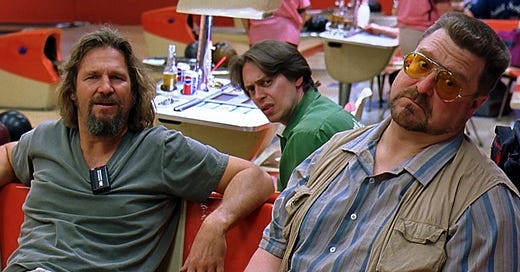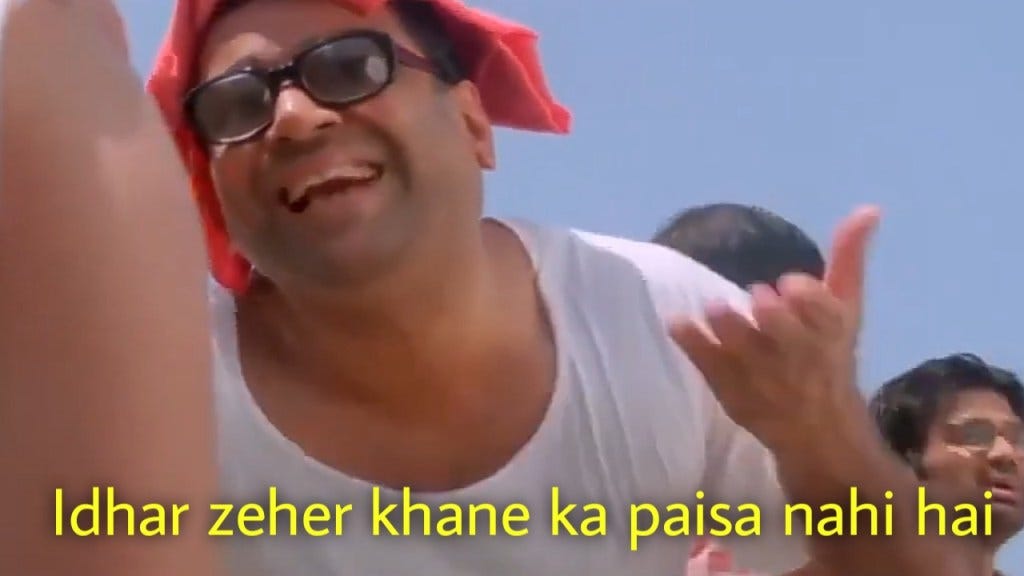Why a life without goals is the key to happiness
What if the key to happiness is to abide? What’s the point of battling some meaningless idiot over the first principles of what defines hate speech?
One of the more annoying things about Delhi gyms – other than clientele who all look like Kartik Aryan clones trying to get to Salman level – is that trainers will accost you every other day to float the idea of personal training.
They will ask: “What are your goals? Do you want to decrease your Madhya Pradesh? Lose weight? Become fitter? Lift heavier? “
Fed up with their constant badgering, I finally took a leaf from a colleague and replied: “I’ve no goal in life or the gym. Qualitative or quantitative.”
I didn’t want to become fitter, thinner, lose weight, gain muscle, or do anything except spending some in the gym to reach my happy place. And then leave without giving too many fist bumps.
My logic is that it’s quite unlikely that I will develop the physique of an underwear model - unless woke body positivity suddenly changes the definition of male beauty - and that there’s no point in killing myself in the gym and following a regime that requires me to eat just whey protein and broccoli.
And then it dawned upon me.
I have no goals in the gym or life – qualitative or quantitative – beyond the next rep, the next drink, the next adda, the next book I read, the next piece I write, the next Star Wars show, or the next Marvel movie.
I am content in my lot or, to borrow a phrase from Voltaire: “Quite happy to just tend to my garden.”
This made me wonder if having no goals is the key to happiness. In fact, surrounded by a bunch of constantly unhappy people, I am almost always elated. Is that why The Dude in The Big Lebowski so happy?
As Sandipan Deb notes in his piece on the cult movie: “He abides. By his own laws. Which basically tells all of us to take it easy. The Big Lebowski is a manifesto for slackers who would rather lounge and eat unhealthy food than get into any quarrel on issues that seem critical right now. They abide.”
What if the key to happiness is to abide? What’s the point of battling some meaningless idiot over the first principles of what defines hate speech?
We live in the age of toxic positivity. There’s so much positivity around us that you wish it would get AIDS. But even news there is positive since you just need to take a pill to survive the disease that, the Christians claim, was sent by God to fuck with gay people.
But everywhere else, it’s LinkedIn-level positivity.
“Your career really is a marathon and not a sprint.”
Why does it have to be anything? Why can’t it be a simple transaction where a corporation pays me money, and I pay them back in services. Why does it have to be anything beyond that?
Or something like: “I was really poor. My dad could only afford Android devices, but now I have a Mac, an iPhone, and a dildo used by Steve Jobs. God bless hard work.”
We end up with a generation that earns more than their parents ever dreamt of but then spends it on absolute nonsense to bolster their self-worth.
Now I will be the last person in the world to argue that money isn’t important. It’s the key to everything, and as I wrote titled Paisa Laya?: “Earning and bringing money to the table is why we live. Because when we have money, everything else is feasible. You can buy power, elicit sex, create a legacy, and shut up critics if you’ve the moolah.”
But that doesn’t mean that the desire to earn money should be the key to the pursuit of happiness. In fact, I’ve heard of people getting lifestyle coaches to help in the aforementioned pursuit. I mean, there’s really only one lifestyle coach, and his name begins with K.
The other day, a close friend, a hotshot Ground Zero investor in some hot tech startups, shared a report about Americans earning over $250,000 a year and still spending all of it.
He said: “I genuinely feel sad for these people. It’s an ingrained “never-going-to-be-enough” attitude! Sadly, I see it here in a lot of our IIM grads as well - although, if they have strong family ties (and non-greedy parents), that’s the only thing keeping them from not being clinically depressed after making substantial monies!”
One study suggested that the amount one needed to be completely happy was $70,000, which was later updated to $95,000.
This made me realize that there’s an argument to find a realistic middle ground between Buddha and Midas as far as detachment from materialism is concerned. I call it taka mati, mati taka.
If you’ve got the money, great. But your self-worth shouldn’t be linked to what brands you can buy.
Recently I posted on Twitter: “I am sick of stories about inspirational folks. Give me some tales about non-inspirational folks who have no goal in life beyond existing.”
One astute user pointed me to this delightful piece on The World’s Dullest Blog. That reminded me of a delightful titbit by Sheila Dhar in the book Raga N Josh.
For the uninitiated, Sheila Dhar was a classical musician and teacher who happened to be married to PN Dhar, one of the economic advisors to Mrs. G.
In the book, she describes a delightful rendezvous with the Queen of an African Republic at a diplomatic event. One individual asks the Queen, what she does, to which she replies: “I just bees.”
Perhaps that is the key to happiness. We just have to bees.







